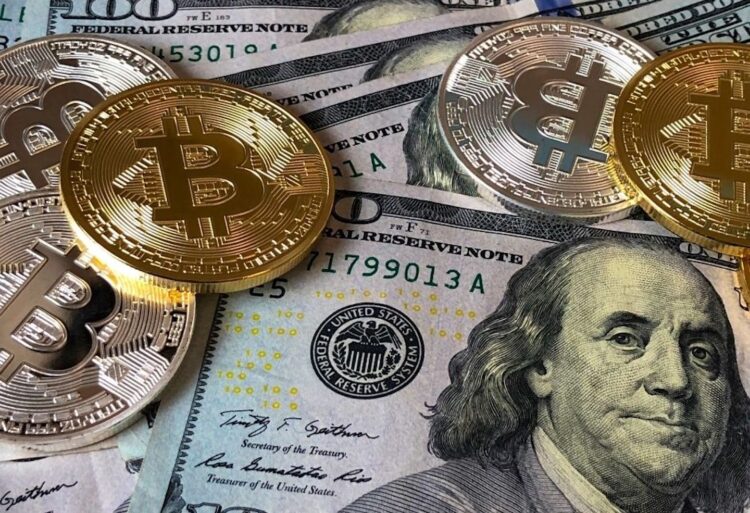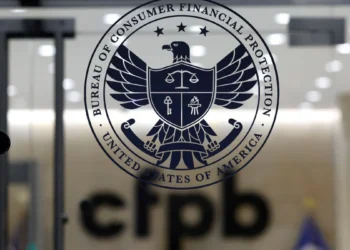At the Nashville Bitcoin 2024 conference, Senator Cynthia Lummis (R-Wyo.) unveiled a “revolutionary proposal” for the U.S. government to start investing in Bitcoin. Her idea is to add Bitcoin to the nation’s strategic reserve assets as a tool to fight inflation and stabilize the dollar’s value.
Following her announcement, Senator Lummis formally introduced the “Boosting Innovation, Technology, and Competitiveness through Optimized Investment Nationwide Act of 2024” or simply the “BITCOIN Act of 2024” on the legislative floors on July 31. The bill’s primary objective is to tackle the national debt, which has soared past $35 trillion as of August 2024. Lummis believes establishing a Bitcoin reserve could help slash the U.S. national debt by half by 2045.
This is quite a bold prediction, considering that the country’s debt profile currently sits at $35 trillion and is projected to rise by 141.4% by that time. However, despite being so optimistic and beneficial for one party involved, the idea doesn’t have a bright prognosis for the other party: the broader crypto market.
Decoding the “Bitcoin Act”
The “BITCOIN Act of 2024” aims to integrate Bitcoin into the U.S. financial system by establishing a reserve fund dedicated to the cryptocurrency. The plan includes a Bitcoin Purchase Program, which intends to acquire 1,000,000 Bitcoins over five years by purchasing 200,000 Bitcoins annually.

Funding for the program will come from various sources, such as revaluing U.S. gold reserves to boost the Treasury’s General Account, utilizing remittances, and using additional profits from the Federal Reserve. The purchased Bitcoins will be stored in a Strategic Bitcoin Reserve for at least 20 years to safeguard their value and insulate them from market fluctuations.
To cover the costs of setting up and maintaining the reserve, the bill suggests using surplus funds from the Federal Reserve and reassessing the value of gold certificates.
The bill emphasizes security and mandates the Secretaries of Defense, Homeland Security, and the Treasury to ensure the physical and digital protection of the assets. Transparency is ensured through quarterly Proof of Reserve checks and independent audits to verify the holdings. Additionally, the bill includes provisions for managing digital assets resulting from Bitcoin forks and airdrops.
The bill isn’t just for the federal government; it also allows state governments to store their Bitcoin holdings in separate accounts within the Strategic Bitcoin Reserve.
Why Making Bitcoin a Strategic U.S. Asset Could Be a Disaster

Bitcoin’s core appeal lies in its decentralized and independent nature. If the U.S. were to designate Bitcoin as a strategic asset, it could lead to increased government control, potentially undermining its original purpose. The U.S. government, driven by the power of the dollar and a large federal debt, might be tempted to print more money to buy Bitcoin. However, this move could weaken Bitcoin’s role as a safeguard against inflation.
The idea of using Bitcoin to help pay down the massive debt is intriguing but comes with challenges. Centralizing Bitcoin for such a purpose assumes its price and liquidity will remain stable, an assumption far from guaranteed.
Managing reserve assets like Bitcoin brings significant political and economic challenges. While the U.S. developing a strategic Bitcoin reserve might seem like a way to promote digital asset adoption and improve areas like energy management and fiscal policy, it could also be a disaster if not carefully handled. Mismanagement could easily compromise Bitcoin’s fundamental qualities, turning a promising idea into a risky gamble.
What are Experts Saying?
Pierre Rochard, VP of Research at Riot Platforms, is backing Senator Cynthia Lummis’ Bitcoin bill. He points out that Bitcoin’s decentralized nature and ability to resist outside interference make it a strong and growing asset. Rochard believes these qualities make Bitcoin increasingly promising for the future.
Jim Bianco, president of Bianco Research, warned that putting Bitcoin under government control could be problematic. In a recent YouTube interview, He argued that this could let the Federal Reserve influence Bitcoin’s price, which goes against its core principle of decentralization. “Governments might set Bitcoin’s price, decide when to buy or sell, and control who owns it,” Bianco said.
Moe Vela, an experienced American attorney and political advisor, calls it a “disaster in the making,” arguing that using taxpayer money for Bitcoin—something he sees as “backed by air and whimsy”—is highly irresponsible. The attorney, who has worked under both the Clinton and Obama administrations, expressed worries about Bitcoin’s lack of structure and anonymity, which he thinks could lead to risks, such as associating with undesirable figures like Kim Jong Un or Vladimir Putin.
Vela also questions the economic sense of adding Bitcoin to reserve assets, believing the downsides far outweigh any benefits. He suggests that the government should focus on cryptocurrencies with real backing and strong regulation, like those overseen by the SEC, to ensure safety and compliance.
Disclaimer: This article is intended solely for informational purposes and should not be considered trading or investment advice. Nothing herein should be construed as financial, legal, or tax advice. Trading or investing in cryptocurrencies carries a considerable risk of financial loss. Always conduct due diligence.
If you would like to read more market analyses like this, visit DeFi Planet and follow us on Twitter, LinkedIn, Facebook, Instagram, and CoinMarketCap Community.
“Take control of your crypto portfolio with MARKETS PRO, DeFi Planet’s suite of analytics tools.”





















